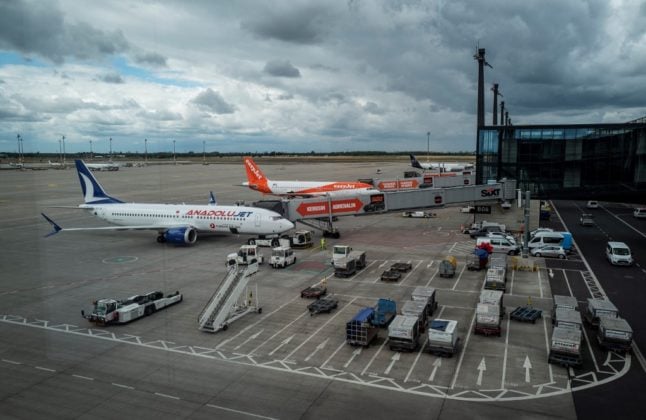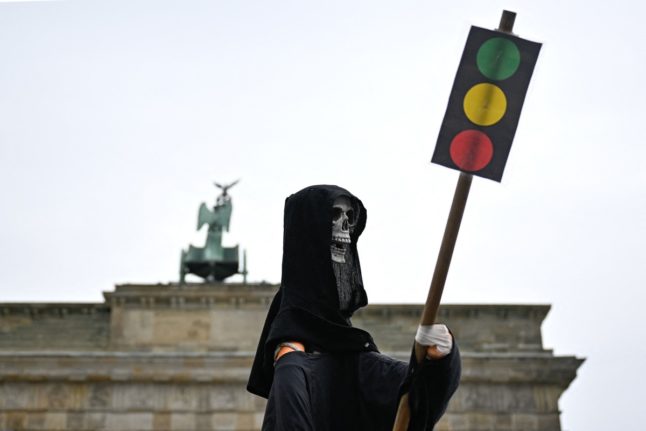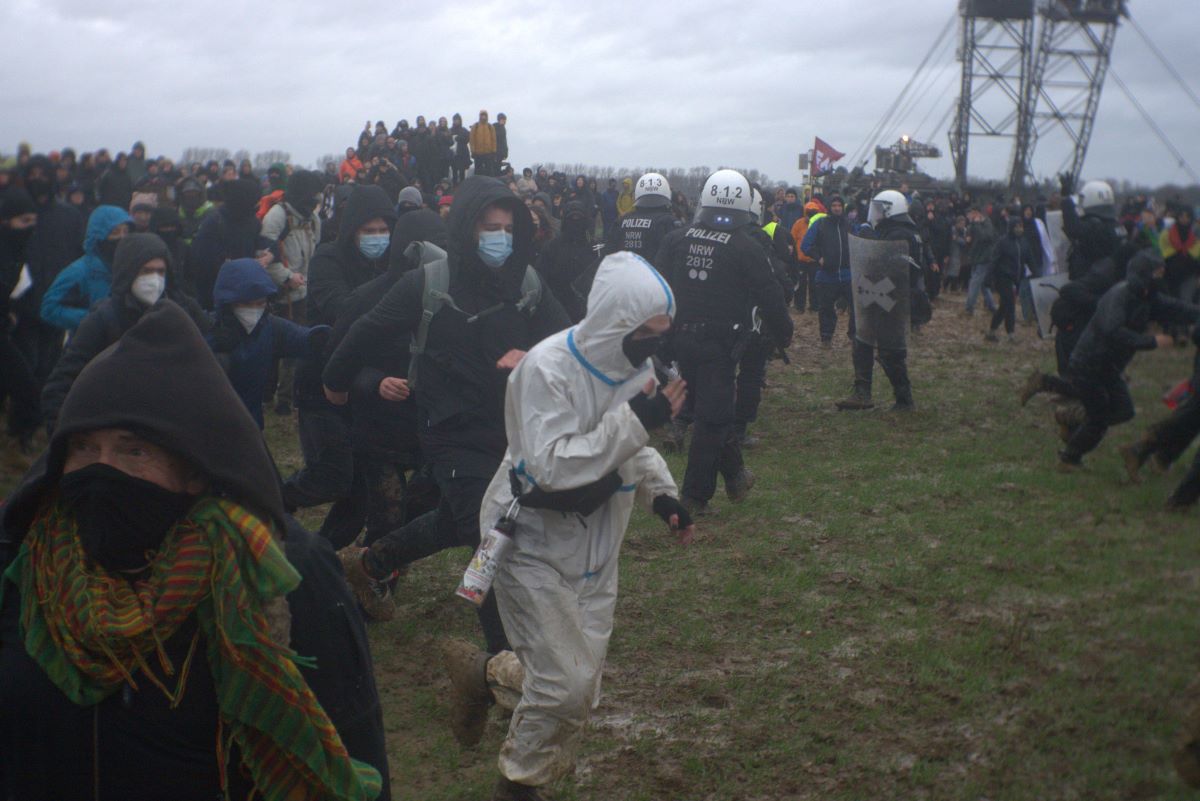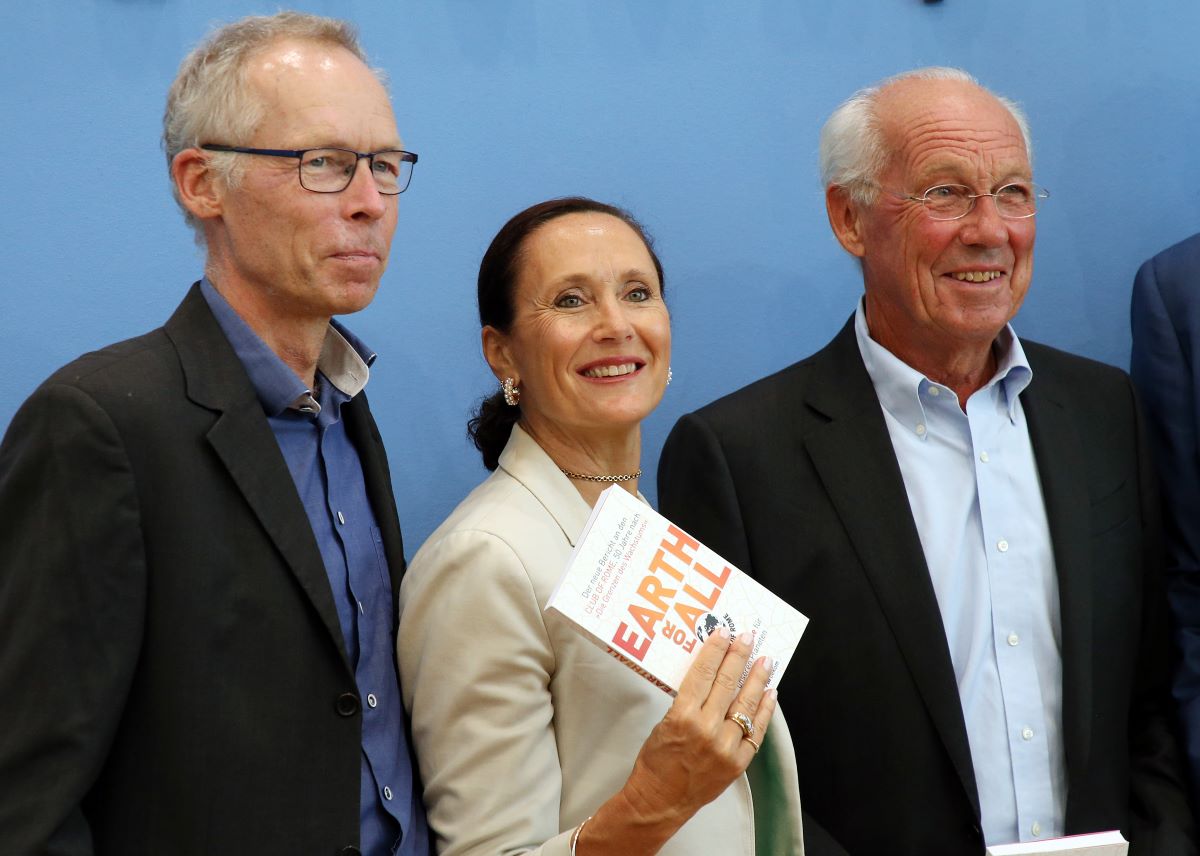Several flights scheduled to either take off or land at the Berlin-Brandenburg Airport starting at around 16:00 Thursday afternoon were disrupted after “Letzte Generation” or “Last Generation” activists gained access to the airport runway and began livestreaming their demonstration.
Letzte Generation – Livestream https://t.co/1cdpgh7Nov
— Letzte Generation (@AufstandLastGen) November 24, 2022
The video shows activists cutting through a fence to access the runway, where they held up placards demanding a nationwide €9 “climate ticket” for public transport and a speed limit on Germany’s famous Autobahn. The controversial protest group has became widely known after throwing mashed potatoes a Claude Monet painting in Potsdam’s Barberini Museum back in October.
READ ALSO: WATCH: German climate activists pour mashed potatoes on €111 million Monet work
After airport staff became aware of the breach, BER Airport temporarily shut down and police arrived on the scene a short time later.
The protest sent flights to and from Berlin’s only airport into turmoil, with forced to circle in the air until getting clearance to land.
Local reader Neil Tarrant was on a plane from Copenhagen to Berlin at the time.
“Around halfway through the flight, the plane turned around and we went back to Copenhagen. The captain explained we didn’t have enough fuel to circle over BER while waiting to see what would happen,” Tarrant tells The Local. “It’s been a long day. But my fellow passengers seem pretty positive, even joking about it. This might turn into a three-hour delay or so though.”
Officials aren’t so relaxed.
Brandenburg’s Interior Minister Michael Stübgen told Der Tagesspiegel: “It’s a serious criminal offence that, in the worst case, also endangers human life,” he told the newspaper. “Anyone who intentionally puts others in danger for their worldview is not an activist, but a criminal.”
“Democratic norms and institutions have no meaning for this organization,” Berlin police union Benjamin Jendro said, adding that imprisonment for the activists was on the table.
At the time of writing, flights were once again able to land and take off from BER. However, authorites at the airport warned of continued delays.
“Flight operations have resumed on both runways,” they wrote in a passenger update on the BER website. “However, there are still delays. We ask for your patience.”
Live updates to flight schedules can be found on the airport website.





 Please whitelist us to continue reading.
Please whitelist us to continue reading.
Member comments